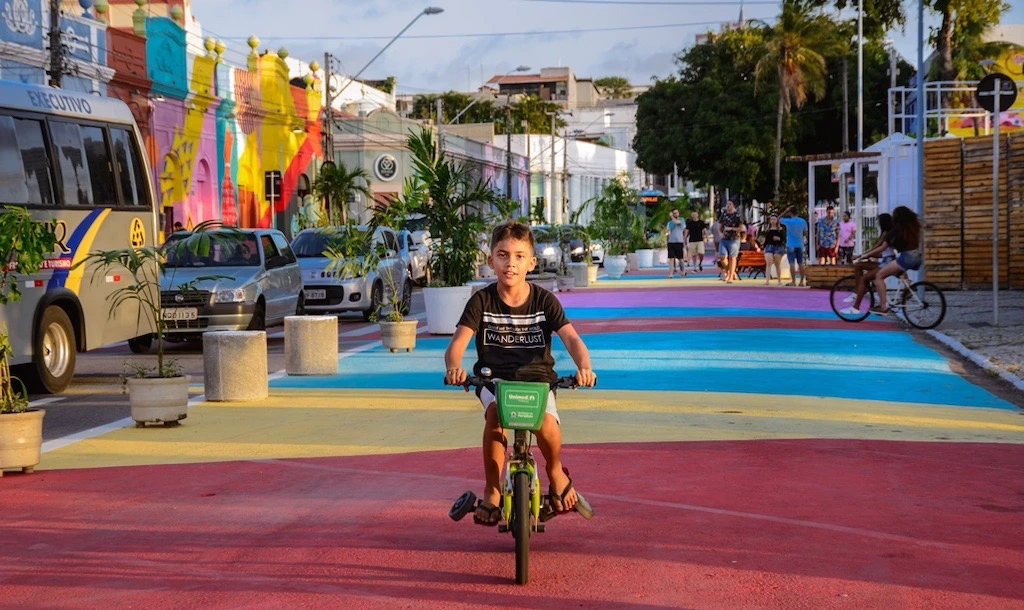
Research consistently demonstrates that investing in cycling infrastructure, not just for World Bike Day, yields substantial social benefits, with cyclists enjoying improved health and well-being. However, a major obstacle to cycling in many cities is the lack of secure cycling infrastructure. BICI aims to help city leaders address this pressing need by constructing more comprehensive and connected cycling networks that serve a larger proportion of residents.

Thus, ten global cities have been selected to receive support and funding from BICI to develop innovative cycling infrastructure and promote sustainable mobility options for their residents. The initiative aims to assist cities in designing streets that encourage higher biking rates, rejuvenate neighbourhoods, and enhance the health and well-being of communities.
Bloomberg Philanthropies is partnering with the Global Designing Cities Initiative (GDCI) to lead the effort, providing technical assistance to the winning cities in project development, cycling facility design, data collection, and resident engagement.
World Bike Day: safe, efficient and sustainable transportation systems are crucial
The ten winners of the BICI awards have been announced in time for World Bike Day, representing a diverse range of cities across the globe. Fortaleza, Brazil, has been awarded the top prize of $1m, while Addis Ababa, Ethiopia; Bogota, Colombia; Lisbon, Portugal; Milan, Italy; Mombasa, Kenya; Pimpri-Chinchwad, India; Quelimane, Mozambique; Tirana, Albania; and Wellington, New Zealand, will each receive $400,000 in funding.
Michael Bloomberg, the founder of Bloomberg LP and Bloomberg Philanthropies, and the 108th mayor of New York City, emphasised the interconnectedness of combating climate change and expanding transportation options in a release.
He expressed his team’s commitment to supporting the winners as they transform their ideas into action, stating that the progress made by these ten cities will not only improve air quality and protect the environment but also drive economic growth. Bloomberg’s sentiments were echoed by Janette Sadik-Khan, Transportation Principal at Bloomberg Associates and former commissioner of the New York City Department of Transportation, who stressed the critical importance of cycle lanes as essential urban infrastructure and commended the winning cities for taking decisive action to address issues such as traffic violence, pollution, and climate change.
The ten winning BICI cities represent a collective population of over 15 million residents and hail from ten different countries across five continents. Out of the 275 applications received between November 2022 and February 2023, from cities with populations exceeding 100,000, these ten projects stood out for their potential impact beyond World Bike Day:
- Fortaleza, Brazil: Develop 180km of cutting-edge cycling infrastructure to invite more community members to cycle.
- Addis Ababa, Ethiopia: Double the number of protected cycle lanes to achieve Africa’s largest city cycle network.
- Bogota, Colombia: Co-design new infrastructure with children to revitalize a low-income neighbourhood and engage young residents.
- Lisbon, Portugal: Roll out new solutions to increase the diversity of residents cycling throughout the city.
- Milan, Italy: Build sustainable, green cycle lanes that connect more than 40 schools.
- Mombasa, Kenya: Protect and connect a cycle network along key corridors with high cycling volumes.
- Pimpri-Chinchwad, India: Launch a neighbourhood model for a 15-minute city, starting with cycling.
- Quelimane, Mozambique: Build new cycling infrastructure that includes protected cycling lanes, pedestrian space, and unique bicycle taxi parking to support non-motorized travel.
- Tirana, Albania: Create an all-ages cycling network through the implementation of safe intersection design.
- Wellington, New Zealand: Increase the number of bike lanes in the city by 160% using resident input to inform planning and development.
James Anderson, who leads the Government Innovation program at Bloomberg Philanthropies, said: “The Bloomberg Initiative for Cycling Infrastructure gave cities around the world the chance to dream big and show what’s possible – and these winning projects demonstrate the extraordinary ideation that this opportunity has unlocked. We look forward to working with these global cities to implement their powerful projects, and as we do, share lessons with their peers worldwide.”
[Read more: E-bike schemes: 5 countries leading the evolution of cycling]






